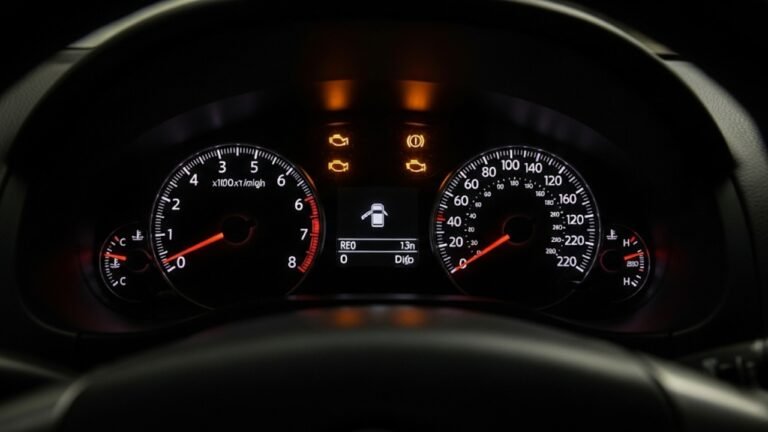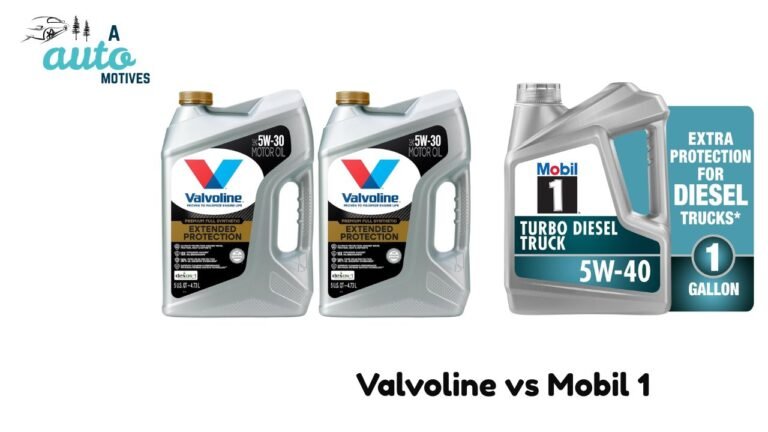Why Does Car Need Oil Change

I still remember the day I learned the hard way. It was a sunny morning, and I had a long drive ahead. My playlist was perfect, coffee in hand, and the road was calling. But halfway through, my engine started knocking—loud and angry. The cause? I had forgotten a simple task: an oil change.
That was my wake-up call. Since then, I’ve become almost evangelical about why a car needs oil change. It sounds simple, but it’s one of those things that, if neglected, leads to expensive repairs and unexpected breakdowns.
In this article, we’ll take a deep dive into why does car need Oil Change—ten core reasons that every driver should understand. We’ll use relatable stories, simple language, and expert insight. Think of this as advice from a friend who’s been there and wants to save you the pain.
In This Article
- 1 1. Engine Oil is the Heartbeat of Your Car
- 2 2. Dirty Oil Equals Engine Damage
- 3 3. Oil Loses Its Strength Over Time
- 4 4. Better Fuel Efficiency
- 5 5. Engine Cooling is More Than Just a Radiator Job
- 6 6. It Keeps Your Engine Clean
- 7 7. Protects Against Rust and Corrosion
- 8 8. Supports Engine Seals and Prevents Leaks
- 9 9. Helps Your Car Pass Emissions Test
- 10 10. Boosts Resale Value and Trust
- 11 The Story Behind Every Oil Change: It’s a Ritual of Care
- 12 When You Skip an Oil Change, the Clock Ticks Louder
- 13 Understanding Different Climates: Hot or Cold, Your Engine Feels It
- 14 What Happens Inside the Engine: A Quick Look Without Getting Too Technical
- 15 Not All Oils Are Equal: Choosing the Right One Matters
- 16 Emotional Side: The Guilt of Neglect and the Joy of Care
- 17 From City Streets to Cross-Country Drives: Oil Is the Common Link
- 18 Final Thoughts: Don’t Wait for Trouble to Knock
1. Engine Oil is the Heartbeat of Your Car

Imagine your engine as a body and oil as its blood. Just like your heart pumps blood to keep you alive, oil circulates to keep your engine running. It lubricates, protects, and cools vital parts.
Over time, that oil breaks down. It becomes thick, dirty, and full of harmful particles. When that happens, your engine has to work harder. And harder work means more wear.
If you’ve ever heard a car wheezing or rattling before it finally breaks down, chances are the owner skipped their oil change. It’s not just about maintenance. It’s about giving your engine a longer life and smoother performance.
Key Insight: Clean oil reduces friction and prevents metal parts from grinding together.
2. Dirty Oil Equals Engine Damage
Have you ever tried running in deep mud? That’s what your engine feels like when it’s running on dirty oil. It’s sluggish. It struggles. And eventually, it breaks down.
Oil starts clean, but as it moves through your engine, it picks up soot, metal shavings, and grime. This gunk turns into sludge. Sludge doesn’t just sit around—it clogs up oil passages and wears out engine components.
Here’s the twist: your engine doesn’t warn you with fireworks. It gives subtle signs—lower performance, reduced mileage, or odd sounds. By the time the check engine light blinks, it’s often too late.
That’s one of the strongest arguments why does car need Oil Change is more than just a maintenance schedule—it’s a rescue plan.
3. Oil Loses Its Strength Over Time
Every superhero has a limit. Even oil.
Fresh oil is full of additives—like detergents and anti-corrosion agents—that keep your engine in peak shape. But over time, these additives break down. The oil becomes less effective.
When that happens, the oil can’t protect your engine like it used to. Parts start rubbing. Heat builds up. And damage creeps in quietly.
It’s like using a worn-out toothbrush—you can still use it, but it won’t do the job. Regular changes restore the oil’s strength, keeping your engine safe and clean.
Real Talk: I once skipped an oil change for 9 months. The result? A $1200 repair bill.
4. Better Fuel Efficiency
Ever notice your car’s gas mileage suddenly drops? Your driving style might be partly to blame. But dirty oil? That’s a big suspect.
When your engine runs clean, it doesn’t have to struggle. Clean oil reduces resistance inside the engine. Less resistance means less fuel burned. That’s how oil changes help you save at the pump.
It’s one of those benefits you don’t see until you feel it. Smoother acceleration. Better throttle response. And fewer stops at gas stations.
So, if you’re wondering why does car need Oil Change, here’s a simple answer: it saves you money—on gas and repairs.
5. Engine Cooling is More Than Just a Radiator Job
Most people think only the radiator cools your engine. That’s half the story.
Oil also plays a major role in drawing heat away from engine parts. Without fresh oil, the engine overheats faster. And when metal parts overheat, they warp, crack, or even seize.
The result? A ruined engine.
I learned this lesson one summer in Dhaka. I was stuck in traffic, the A/C blasting, and the temp gauge creeping up. I had forgotten an oil change—again. That mistake taught me why does car need Oil Change reasons are not to be ignored.
Table: Oil Change vs. Engine Performance
| Factor | With Clean Oil | With Dirty Oil |
| Engine temperature | Cool and controlled | High and unstable |
| Fuel efficiency | Optimal | Reduced |
| Engine noise | Smooth and quiet | Loud and harsh |
| Risk of breakdown | Very low | High |
| Longevity of engine parts | Extended lifespan | Shortened lifespan |
6. It Keeps Your Engine Clean
Think of fresh oil like a shower for your engine.
It washes away debris and keeps everything inside running smooth. But when you don’t change it, that oil turns into grime. Instead of cleaning, it starts spreading the dirt around.
I once opened the oil cap of an old car that hadn’t had an oil change in years. The sludge inside looked like black tar. The engine was beyond saving.
Changing oil regularly ensures that grime doesn’t settle and create layers of gunk that are impossible to clean later.
Reminder: Your engine isn’t self-cleaning. Only fresh oil can flush out the bad stuff.
7. Protects Against Rust and Corrosion
You might think rust only affects the outside of your car. But your engine is vulnerable too—especially from the inside.
As oil ages, its ability to protect metal surfaces drops. That leaves parts exposed to air, moisture, and acid buildup. The result? Internal rust. And that’s a death sentence for engine performance.
When you keep up with oil changes, you’re doing more than just maintenance. You’re protecting your engine from silent killers.
This is a core reason why does car need Oil Change can never be skipped.
8. Supports Engine Seals and Prevents Leaks
Old oil becomes acidic and thick. That’s bad news for seals and gaskets, which are like your engine’s internal plumbing.
When oil isn’t changed regularly, it starts to erode these seals. Cracks form. Leaks begin. You’ll start spotting dark spots on your garage floor or driveway.
If you’ve ever topped off oil and wondered where it went, the culprit might be worn seals. Fresh oil has conditioners that protect seals and keep them pliable.
Did You Know? Oil change is not just about the engine—it protects the whole system.
9. Helps Your Car Pass Emissions Test
We all want clean air, right? Dirty engines pollute more. They burn fuel inefficiently and release more harmful gases.
Clean oil helps combustion stay clean. And clean combustion means fewer emissions.
If your car fails an emissions test, dirty oil might be the hidden cause. It’s like trying to breathe through a clogged nose—you won’t function properly.
Changing your oil improves your car’s environmental footprint and helps meet regulations.
10. Boosts Resale Value and Trust
When you plan to sell your car, one of the first questions a buyer asks is, “Has it been well-maintained?”
A service history full of regular oil changes speaks volumes. It shows care, responsibility, and trustworthiness. It tells the buyer that the engine was loved—not abused.
In fact, I sold my old sedan at a higher price simply because I kept detailed oil change records. Buyers didn’t just want the car—they trusted me.
This final reason sums up why does car need Oil Change perfectly. It’s not just about the now—it’s an investment in your car’s future.
The Story Behind Every Oil Change: It’s a Ritual of Care
Every culture has rituals—little acts that mean more than they seem. For some, it’s lighting a diya before sunset. For others, it’s the Sunday morning car wash. And for people who love their cars? An oil change is a quiet promise to protect something valuable.
When I was growing up in my neighborhood, the older guys always gathered around cars on weekends. They’d talk, laugh, sip tea, and pop hoods. Changing oil was as much about bonding as it was about the engine. And that stuck with me.
That sense of care, of doing something right and on time, creates pride. You feel connected to your vehicle. You treat it with love, and in return, it doesn’t let you down.
That’s another layer to why does car need Oil Change. It’s about respect—for your car, your time, and your wallet.
When You Skip an Oil Change, the Clock Ticks Louder
There’s a danger in thinking “It’s just oil—I’ll do it later.”
Later becomes next month. Then six months. Before you know it, you’re on the highway with an overheating engine and steam pouring from the hood.
Delaying an oil change is like not going to the dentist because your teeth don’t hurt yet. By the time they hurt, it’s already too late.
Here’s the reality: every time your engine runs with old oil, it’s aging faster. Its parts grind more. The wear multiplies. And once the damage is done, no oil change can undo it.
Warning Sign: Dark, gritty oil on the dipstick means it’s overdue. Don’t wait for a dashboard light.
That ticking clock is another reason why does car need Oil Change is one of the most crucial maintenance steps you can take.
Understanding Different Climates: Hot or Cold, Your Engine Feels It
Let’s talk weather. Your car feels it just like you do.
In hot climates like Rajasthan or Texas, engines run hotter. Oil breaks down quicker. In cold places like Canada or Kashmir, oil thickens and struggles to flow. In both cases, fresh oil helps keep everything balanced.
When I visited my cousin in Toronto, he warned me that oil thickens during the winter. He changed to winter-grade oil in October. That simple switch kept his engine from freezing up on frosty mornings.
This shows how why does car need Oil Change isn’t just about a date or mileage. It’s also about your surroundings. Tailoring your oil change to your environment is part of smart car care.
What Happens Inside the Engine: A Quick Look Without Getting Too Technical
Let’s open up the engine—just mentally.
Inside, thousands of metal parts are moving, spinning, pumping, and rubbing. Pistons fire. Valves open and close. Shafts rotate. And every movement needs smooth lubrication.
Oil creates a cushion between these metal surfaces. It prevents contact. That contact, if it happens without lubrication, causes wear, heat, and cracks.
When the oil is clean, this system works like a dream. When it’s dirty? The whole rhythm falls apart.
Think of it like cooking with butter versus dry frying. Without that protective layer, things burn. That’s why does car need Oil Change reasons are often unseen, but always essential.
Not All Oils Are Equal: Choosing the Right One Matters
Let’s be honest—standing in front of motor oil shelves is overwhelming. Synthetic, semi-synthetic, high mileage, 5W-30, 10W-40… what does it all mean?
Here’s the short version:
- Synthetic oils last longer and perform better under extreme temperatures.
- Conventional oils are cheaper but need changing more often.
- High-mileage oils contain additives to help aging engines.
Choosing the right oil is like picking the right shoes for a marathon. The wrong one might get you through a few miles, but it won’t support you long term.
Consult your car manual. Or ask a trusted mechanic. Making the right oil choice is just as important as changing it on time.
Bullet Points: Common Oil Change Mistakes to Avoid
- Skipping oil changes beyond the recommended interval
- Ignoring climate-based oil type recommendations
- Mixing different types of oils
- Only topping off oil without changing the filter
- Not checking the oil level regularly
- Trusting the dashboard light too much
- Reusing the same old oil filter
These little habits might seem harmless, but they add up. Avoiding them is key to understanding why does car need Oil Change is not just a suggestion—it’s a responsibility.
Emotional Side: The Guilt of Neglect and the Joy of Care
Cars have personalities. You might name yours, talk to it, or even apologize when you hit a pothole too hard. So when you neglect it, there’s guilt.
That moment when you turn the ignition and hear a struggle, or see a new leak under the car—it hits you. You wish you had done the oil change earlier.
But the flip side is just as real. After an oil change, your car hums differently. The engine feels lighter. The drive smoother. It’s like your car is thanking you.
That emotional payoff is real. And it’s one of those subtle but powerful reasons why does car need Oil Change matters more than you think.
From City Streets to Cross-Country Drives: Oil Is the Common Link
Whether you’re navigating narrow alleys in Kolkata or cruising highways in California, one truth remains: your engine needs fresh oil.
Short trips in city traffic can be harder on oil than long highway drives. Why? Because engines don’t always reach optimal temperature in city driving. That leads to faster buildup of sludge.
So even if you’re not putting on high mileage, you still need to change oil based on time.
This urban reality adds another layer to why does car need Oil Change. It’s not just how far you drive—but how and where you drive that counts.
Final Thoughts: Don’t Wait for Trouble to Knock
Let’s end where we started—on the road.
Every driver has a choice. You can wait until something breaks. Or you can take care of your car like it’s part of the family. A simple oil change is one of the easiest, cheapest, and smartest things you can do.
So don’t wait for that dashboard light. Don’t wait for that knocking sound. Schedule your oil changes. Track them in a notebook. Set reminders on your phone.
Because now you know why does car need Oil Change reasons. It’s not just about oil—it’s about trust, care, and responsibility.






